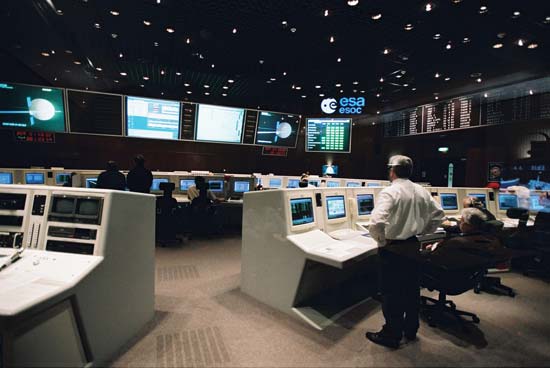
The Minister for Economic Affairs, Industry and Competitiveness, Luis de Guindos, announced that the Government of Spain will draw up a European Space Agency (ESA) Contribution Plan for the period 2017-2024 with funding to total 1.51 billion euros. This contribution, which represents an increase of 600.3 million euros on the plan approved in 2014, will finance Spain’s participation in the compulsory ESA activities and the optional programmes that may be of special interest to the Spanish space industry.
459 million of those additional 600.3 million euros will finance the programmes for the launch vehicle, exploration, manned and microgravity flights, navigation, telecommunications, Earth observation, technology and security. The rest will be allocated to the compulsory contributions (141.3 million euros), which fundamentally represent the investment by ESA in science, as well as other basic and operation-linked activities undertaken by the agency.
At the Ministerial Council held in Lucerne (Switzerland) on 1 and 2 December, Spain assumed presidency of the agency until the next council meeting, which will be held in Spain in 2019. The Spanish delegation was led by the Minister for Economic Affairs, Industry and Competitiveness, Luis de Guindos, and the Secretary-General for Industry and SMEs, Begoña Cristeto.
Organisation of a ministerial council meeting in a Member State is an event of great importance to that country because, besides the profile boost received by the country in question, its influence is also enhanced as it chairs all the preparatory meetings. Furthermore, it represents a great opportunity to significantly raise international awareness as to the technological-industrial capabilities in the Spanish space sector.
Additionally, the 2019 ESA Ministerial Council will be important on another level as it will coincide with EU preparations for the next financial plans 2021-2027, which are expected to include a sizeable heading on space activities equal to or greater than the current heading in this regard (approximately 12 billion euros).
As a result of the public investments and participation in space projects at ESA, Spain has developed an important industrial fabric over the last 15 years. It is one of the few countries able to design, manufacture and operate entire satellites. Contributions to ESA are governed by the GeoReturn principle, which implies that all funding provided by Spain should be returned to Spanish industry by way of contracts. Since the year 2000, Spain has obtained over 2.24 billion euros in contracts from the agency, and the Spanish space sector has increased its turnover significantly from 230 to 750 million euros between 2000 and 2015.
In the field of space infrastructure, Spain is home to one of the five major activity centres operated by the ESA. The European Space Astronomy Centre (ESAC) in Villanueva de la Cañada (Madrid) is the scientific headquarters for the astronomy and planetary exploration missions undertaken by the agency.




